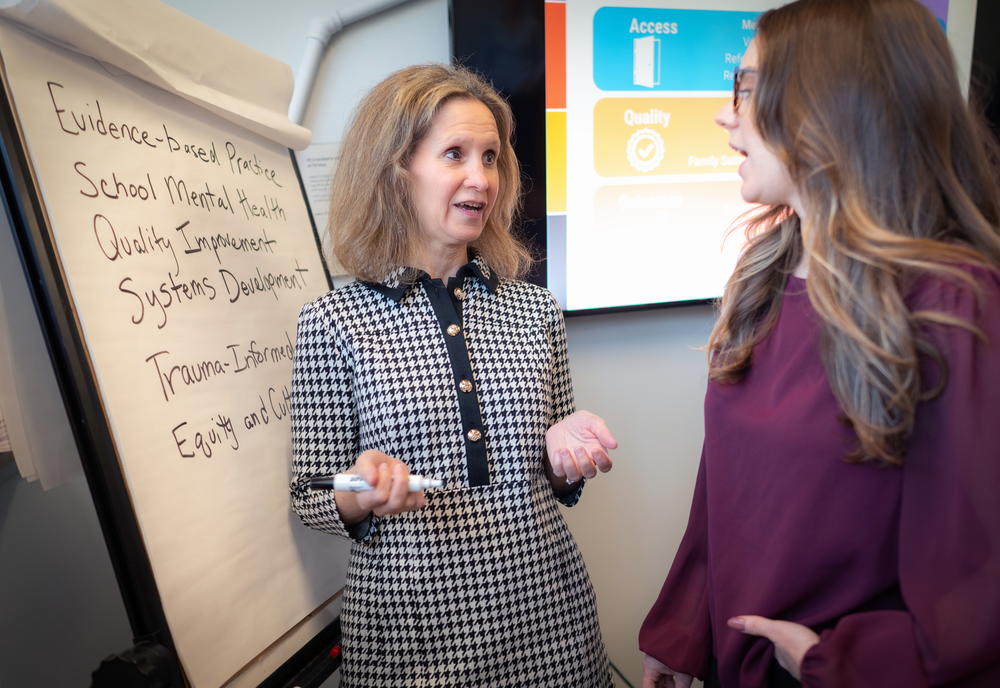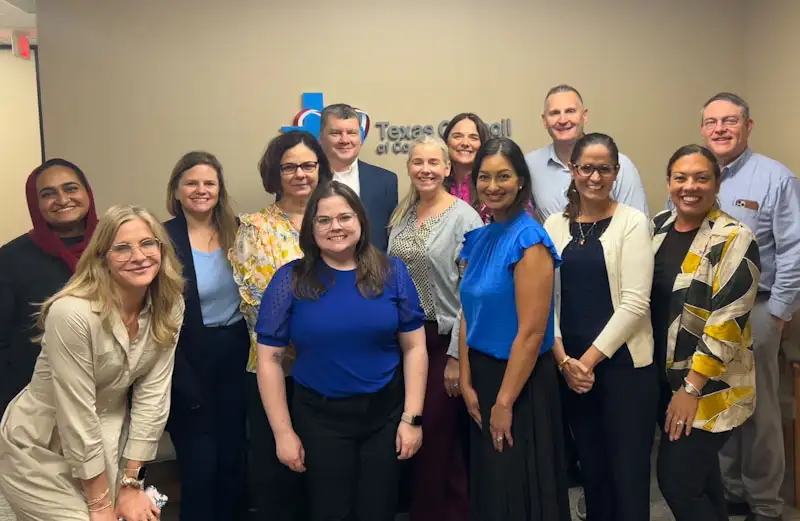Ensuring quality mobile crisis services for youth
Connecticut’s youth mobile crisis services have been recognized by the federal government as a national exemplary model for other states and consistently demonstrates excellent service quality, responsiveness, and outcomes.
Connecticut's Mobile Crisis Performance Improvement Center
CHDI serves as the Performance Improvement Center (PIC) for the State of Connecticut's Mobile Crisis Intervention Services through a contract with the Connecticut Department of Children and Families (DCF).
What are Mobile Crisis Intervention Services?
Connecticut's Mobile Crisis Intervention Services (MCIS) provides 24/7 mobile mental health crisis services free of charge to all children and youth in Connecticut through a network of fourteen provider sites across the state.
Trained mental health clinicians are deployed to homes, schools and community locations to provide in-person crisis stabilization services and linkage to additional services for children in Connecticut.
What does the Performance Improvement Center do?
The MCIS Performance Improvement Center (PIC) carries out a number of functions for mobile crisis providers, DCF, and others to improve mobile crisis service quality and outcomes:

Our Impact
We have seen dramatic improvements in service access, quality and outcomes since we started working with Connecticut mobile crisis providers in 2009:
More children and families now access mobile crisis services
The total number of children and families served more than doubled between 2009 and 2019. Though volume has fluctuated during the pandemic, Mobile Crisis continues to serve a high number of children.
Mobile Crisis Intervention Services are highly responsive
Rates of face-to-face contact with families that request services is at 90% or higher at nearly all mobile crisis sites.
Children improve behaviors and functioning
Parents and clinicians see improvements in problem behaviors and functioning by the end of mobile crisis intervention.
Mobile Crisis Intervention Services clinicians are well-trained
Hundreds of clinicians have been trained in the core competencies related to providing mobile crisis services in the community.
More children and families now access mobile crisis services
The total number of children and families served more than doubled between 2009 and 2019. Though volume has fluctuated during the pandemic, Mobile Crisis continues to serve a high number of children.
Mobile Crisis Intervention Services are highly responsive
Rates of face-to-face contact with families that request services is at 90% or higher at nearly all mobile crisis sites.
Children improve behaviors and functioning
Parents and clinicians see improvements in problem behaviors and functioning by the end of mobile crisis intervention.
Mobile Crisis Intervention Services clinicians are well-trained
Hundreds of clinicians have been trained in the core competencies related to providing mobile crisis services in the community.
Mobile Crisis Dashboard + Reports
CHDI uses data and results to work directly with providers to examine their services, improve them where necessary, and promote the best possible outcomes for children and their families.
To learn more, explore the new, interactive data dashboard or review monthly, quarterly and annual Mobile Crisis reports:
View Mobile Crisis Data Dashboard


Building a national model
CHDI has helped Connecticut establish a nationally recognized Mobile Response and Stabilization Services (MRSS) program with strong continuous quality improvement through our work as Connecticut's Mobile Crisis Performance Improvement Center. We are now sharing these best practices with states and communities across the country through our national MRSS consultation.
Download National MRSS Best Practices Guide

Contact Youth Mobile Crisis Services
In Connecticut, contact Mobile Crisis by dialing 2-1-1 or visit the Connecticut Mobile Crisis Services website.
Related Resources
Mobile Response for Children, Youth, and Families
A Guide to Best Practice Data Elements and Quality Improvement Approaches
National MRSS Best Practices
A Publication of the National Mobile Response & Stabilization Services Quality Learning Collaborative
Mobile Crisis Outreach Materials
Find downloadable brochures, wallet cards, posters, and slides to share in your community.
